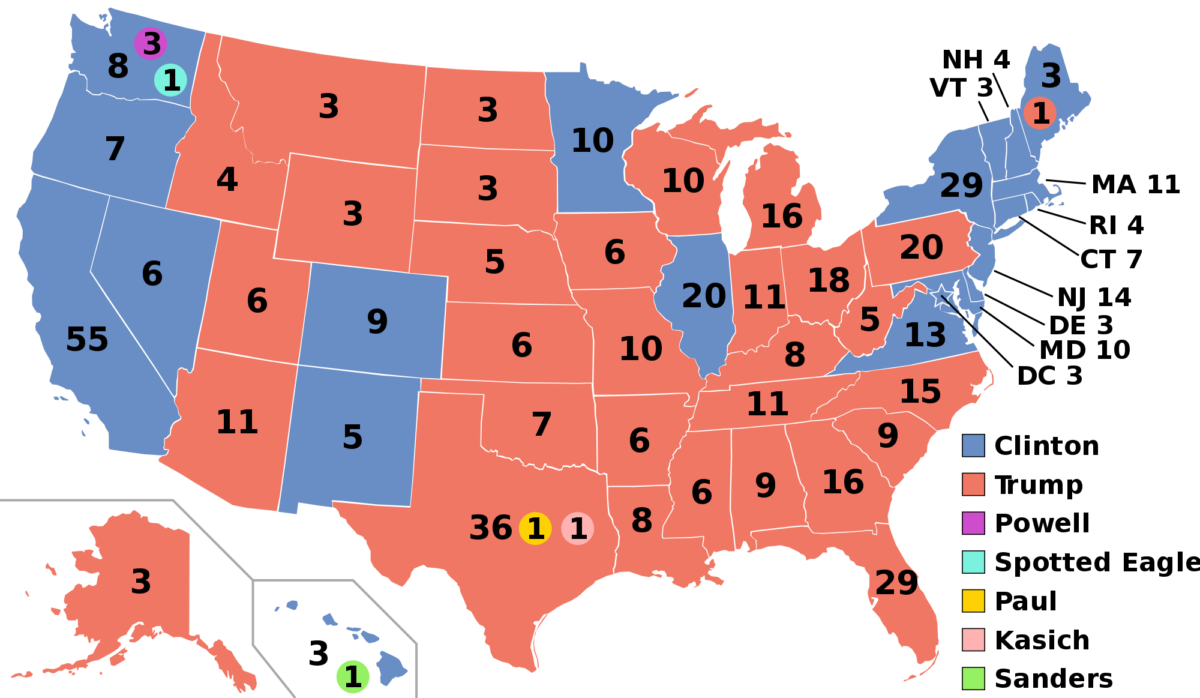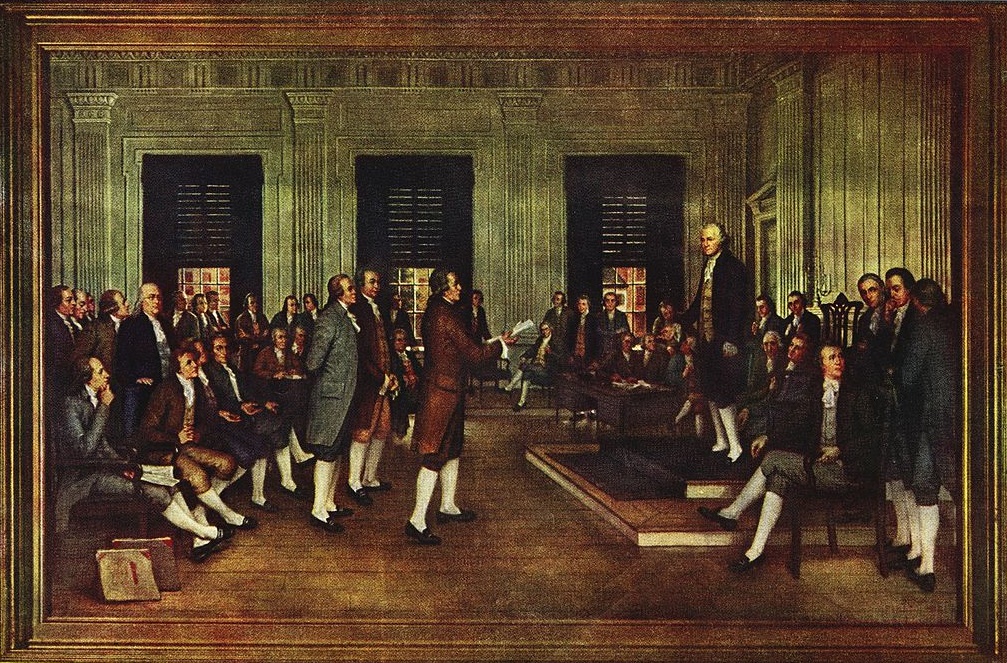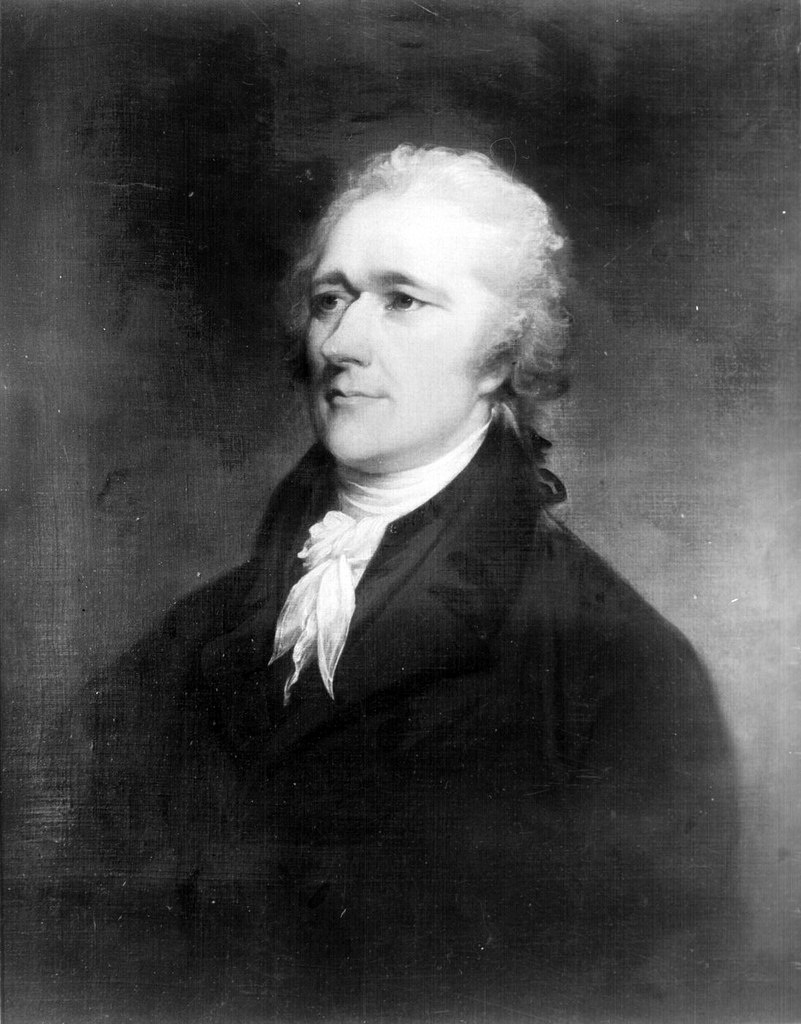Yes, the electoral college is undemocratic – but so is the whole U.S. Constitution
In stunned abhorrence of president-elect Donald Trump, many people sought some recourse to block him from becoming president. They sought some silver bullet, some mechanism in our system of governance to prevent a presidential candidate who appeared to win the presidential race from actually becoming president.
Finding salvation in the electoral college
Their salvation: the electoral college. The electoral college is a handful of elite party delegates who actually cast the real votes for president. Many people advanced the idea that these delegates have the power to be a final check on the popular will of the people, who supposedly lost their senses when voting for Donald Trump. They liked this idea, because it meant there was some hope to stop Trump from becoming president.
But using the electoral college in this way struck many of these same people as highly undemocratic. And rightly so. The proposal they supported was for the electoral college delegates – political party insiders – to ignore the popular vote of the people of their state and cast their vote for whomever they wanted.

Photo source: Wikipedia, Electoral College 2016
This is, of course, the antithesis of democracy. The folks advocating this electoral college end-run around the election results knew this. They knew they were pursuing an aristocracy to achieve their ends. So – as “good democrats” – they struggled with making sense of their willingness to make the ends justify the means.
The U.S. Constitution was never meant to be democratic
The U.S. Constitution contains the electoral college provisions. In the process of rationalizing their anti-democratic strategy, these advocates fictionalized much of what the electoral college and the U.S. Constitution stand for and where they come from. They have imagined that our Constitution, at its heart, is a document that upholds democracy.
Here’s an example.
Tom Tomorrow, a savvy political cartoonist, drew a cartoon where president-elect Donald Trump used a time machine to go back to the 1787 constitutional convention in Philadelphia. There he meets the founding fathers. After hearing Trump talk about himself and then time travel away, one of the founding fathers says to his fellow delegates:
“Gentlemen, I do not fully comprehend what we have just witnessed, but one thing is exceedingly clear – we must abandon any inclination we may have held toward a system of direct democracy – and institute a safeguard to ensure that such a dangerous narcissist will never become president of this nation! It shall be known as the electoral college! Our posterity will never even know how close they came to utter ruination!”
http://www.dailykos.com/stories/2016/12/5/1606903/-Cartoon-The-mysterious-stranger
The historical fiction this cartoon subscribes to is the idea that the wealthy men assembled at the Philadelphia constitutional convention had “any inclination . . . toward a system of direct democracy.” This cartoon, and the broader discussion around the electoral college in light of Trump’s election night win, is emblematic of a general lack of understanding of our political history; namely, what the U.S. Constitution meant in the context of the American Revolution.
The U.S. Constitution Protects Government from the People
The Constitution was not meant to be the founding document of a democracy. The founding fathers designed a system of government that intentionally separates government power from the people. They wanted to make it harder for the people to influence foundational economic policy decisions (notably, slavery, trade, and monetary policy). The electoral college was but one mechanism for doing that, and it is hardly the most offensive anti-democratic measure in the Constitution.
The Constitution was framed in 1787. It must be seen in the context of the American Revolution that occurred nearly a dozen years earlier. By 1787, the 1% enacted counter-revolutionary policies via the new Constitution because they feared that democracy would lead to economic equality. Economic equality would mean they would no longer be the 1%.1

'The Adoption of the U.S. Constitution in Congress at Independence Hall, Philadelphia, Sept. 17, 1787' By John H. Froehlich [Public domain], via Wikimedia Commons
We realize most of us are taught that the U.S. Constitution was the crowning achievement of the American Revolution. This is probably why the people who sought to use the electoral college to oust president-elect Trump were experiencing cognitive dissonance: They believe we live in a democracy, and that Trump was democratically elected.
Well, let’s ax that myth: We don’t live in a democracy.
Democracy: elected officials must at least represent the people
In a democracy, even in a representative democracy, elected officials represent the people. Democracy can mean much more than that, but that’s at least a minimal standard. The U.S. population is over 325 million people, but only 63 million voted for Donald Trump. That’s less than one out of five of us deciding who our most powerful elected official is.
Many people who live in the U.S. are not permitted to vote for their representatives. The most blatant injustice here is felony disenfranchisement, where people can permanently lose their right to vote for having committed a crime. But we should probably also be talking about lowering the voting age: If young people are old enough to have a job and reproduce, they are certainly old enough to vote. And if this election showed anything, didn’t it show that younger people are more responsible voters than older people?
To make matters worse, Donald Trump only received 46% of the votes of the people who actually cast ballots. His chief rival candidate received 48%.
Let's stop saying Donald Trump was democratically elected. Which means let stop pretending we live in a democracy.
Less than one out of five of us voted for the new President-elect. And he only obtained 46% of the votes for president. Anyone want to call that a democracy?
Didn’t think so.
If we want to live in a democracy, we need to change more than just who gets elected
So let’s stop saying Donald Trump was democratically elected. Which means let’s stop pretending we live in a democracy.
Getting to that understanding – that we don’t live in a democracy – allows the people who were hoping for a miracle from the electoral college to stop wringing their hands about advocating for an undemocratic mechanism to prevent Donald Trump from being crowned in January. Our federal government was designed to be undemocratic from the beginning. Alexander Hamilton – in that Philadelphia convention – even advocated having a King instead of a president.

Photo source: Mario Doss, Flickr Creative Commons
Hamilton didn’t get exactly what he wanted, and it remains to be seen how closely Trump’s undemocratic ascendancy will come to monarchy. But one thing we do know: The democracy envisioned in the American Revolution was betrayed back in 1787. If we want to live in a democracy, we need to make fundamental changes to the way we decide who has power to govern, not just who does so.2
1 For the historical context of the framing of the United States Constitution, we recommend Terry Bouton’s book “Taming Democracy: ‘The People,’ the Founders, and the Troubled Ending of the American Revolution.” Bouton looks in depth at the political and economic history of the last quarter of the 18th century, using Pennsylvania as a case study. Also, for an extended history survey of liberation movements from the early 17th century to the early 19th century, see Peter Linebaugh and Marus Rediker’s book “The Many-Headed Hydra: The Hidden History of the Revolutionary Atlantic.”
2 Ironically for the advocates of this electoral end-run around the popular vote, most of the electoral college members who decided they could vote as they saw fit were people from states where the popular vote did not favor Trump. See https://blogs.sos.wa.gov/FromOurCorner/index.php/2016/12/wa-electoral-college-8-votes-for-clinton-4-faithless-voters-for-others/
